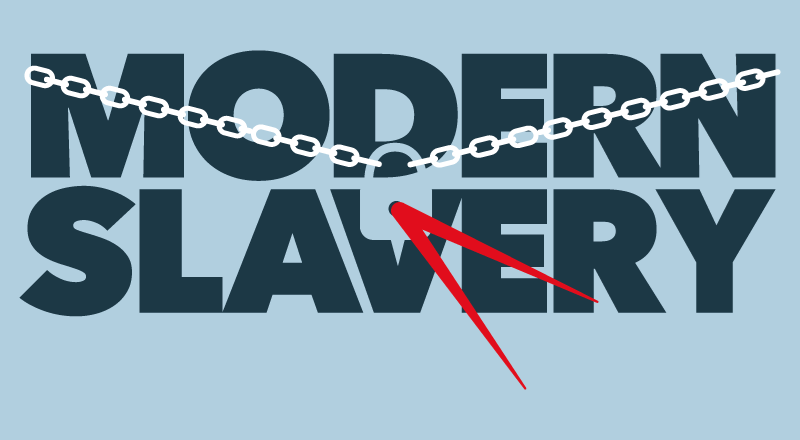Since the outbreak of war in Ukraine, the European Union has affirmed sanctions as its primary means of challenging Russian aggression – confronting the Putin regime on an economic, rather than military, battlefield.
Current EU laws compel Member States to apply effective, proportionate and dissuasive penalties in the event of sanctions infringements, and generally cover:
- the ‘restrictive measure’ or sanction in question;
- an ‘anti-circumvention’ clause, which prohibits knowing and intentional participation in activities that seek to work around the relevant sanction; and
- further obligations, such as to report on steps taken to implement the sanction, eg, by reporting to authorities the quantity of assets that have been frozen.
Towards the end of May, however, the European Commission highlighted a problem with the existing enforcement framework: an inconsistent approach to prosecuting the types of activities that fall within the scope of Point 2.
In an official notice, the Commission pointed out that evasion is addressed in different ways by different groups of Member States. So, in 12 EU nations, it is solely a criminal offence. In 13, it is prosecuted as either an administrative or criminal offence, depending on severity. And in Slovakia and Estonia, it is wholly an administrative offence.
For the Commission, that patchwork approach is unsatisfactory, particularly in light of the EU’s sanctions environment’s finer detail. At present, the notice says, there are more than 40 regimes of restrictive measures in place across the bloc, covering a sprawl of private individuals, registered entities, third countries, business sectors, import and export procedures, travel activities and the provision of certain financial services.
To rein in that sprawl and heighten the gravity of infringement, the Commission has called upon EU Member States to agree to make sanctions evasion an EU-wide criminal offence, thereby harmonising the enforcement framework.
Economic weapons
“The idea behind having a common way of dealing with sanctions evasion in the field of enforcement is that it would ensure consistency across Member States, and therefore drive effectiveness – that’s what I take to be the primary purpose,” says Angela Foyle, Chair of the Anti-Money Laundering Working Party at professional association Accountancy Europe.
She notes that by calling on Member States to make circumvention a criminal offence – even though, in practical terms, administrative penalties can be quite severe – the Commission is emphasising the level of seriousness around sanctions as a category of legal instruments.
Foyle explains: “They’re part of the EU’s armoury, and are being used in economic warfare. Raising the stakes around sanctions evasion is one step the bloc can take to combat a regime it finds politically unacceptable, or whose actions conflict with international law. And having the facility to impose criminal penalties on those who try to circumvent these sanctions makes those restrictive measures much more effective weapons.”
In Foyle’s assessment, whether the penalties are criminal or administrative, adherence to sanctions should be a key priority for every EU-based accountant in any event. However, the proposed shift of all Member States towards criminal penalties for evasion “brings into sharper focus” the strictures accountants must observe under the EU’s recent Sixth Package of Sanctions against Russia. Published on 3 June and immediately adopted by every EU country, the rules state:
“It shall be prohibited to provide, directly or indirectly, accounting, auditing, including statutory audit, bookkeeping or tax consulting services, or business and management consulting or public relations services to:
- the Government of Russia; or
- legal persons, entities or bodies established in Russia.”
Crucially, Foyle notes: “This measure excludes Russian entities owned by EU legal persons, entities or bodies. But there’s a question mark over whether that relates to 100% wholly owned subsidiaries or those in which EU-based interests have a controlling stake, which can be as little as 51%. So, it’s important for accountants to carry out the necessary due diligence to check whether they’re working within the boundaries of that exemption. At the same time, accountants should always be conscious of their ethical obligations while carrying out work, particularly where there may be ‘grey areas’.”
Ownership and control
One point Foyle is keen to stress is that it is much more challenging for accountants to comply with sanctions against a description of activities or persons than it is for them to observe measures against specific, named entities or persons.
In the latter case, accountants can readily use software platforms that provide access to sanctions data to ascertain whether or not a named party is safe to do business with. But the tramlines around parties that fall within the scope of group or descriptive measures will not be so immediately obvious.
“That puts the onus on accountants to use their discernment on a case-by-case basis,” Foyle says.
On a related note, she explains that it is now even more important for accountants to understand their clients’ ownership and control structures. “There are pieces of guidance around this, but one question that could be a potential tripwire is: what if you’re dealing with an organisation in which two separate, sanctioned persons each own, say, 26%? It would be wise to take legal advice, because different rules may apply depending on whether or not those individuals are acting in concert.”
In addition, she notes, a firm understanding of ownership and control will help accountants to determine whether the entity in question has recently made any unusual transfers of finance or shares.
In conclusion, Foyle says, the Commission’s proposal has raised the level of emphasis on due diligence to ensure that accountants are working on safe turf. “That may require your firm to mandate more open-source research on sectors where there are high-risk factors, such as links to Russia or opaque ownership structures,” she notes. “It would also be beneficial to ramp up your subscriptions to software products that enable you to screen for sanctions or politically exposed persons. Those are the sorts of steps that accountants should be taking to equip themselves for the road ahead – because this isn’t going away.”
Recent articles
Company reform and economic crime
The Economic Crime Act 2022 became law in March and part two of the bill is incoming. From risks to required changes, we explore key considerations for accountants on the issue.




